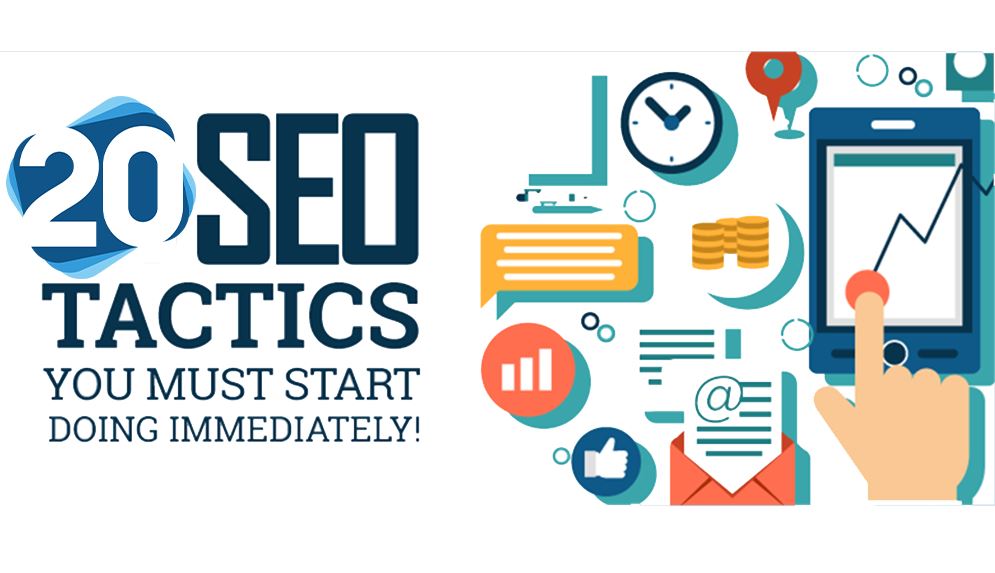14] SLOW, SLOW, QUICK
Total average SEO impact: ★★★
Slow searches for fast deals
For people who are born with a bargain DNA, retailers have invented deal days. We all know them and most of us have been swayed by them. Black Friday, Cyber Monday, Amazon Prime Day, Tax-free weekends, Single’s Day, we marketeers have invented all sorts of names to lure shoppers with great once-in-a-lifetime deals. What’s the deal of the deal-day? You will get the deal if you decide and buy right now. So the exchange that is taking place is low price for speed. There is no room for thinking it over, it is right here, right now. Right? Wrong!
Don’t underestimate the deal shopper
Research from Google shows that 60% of deal seekers research before they buy on deal-day. In fact a large part of this group is actively searching for products for months prior to some dealdays (especially Black Friday). They compare product details and shop way before D-Day is at hand. What does that mean? Well, first of all, your sales of deal-day do not fall form the sky. You probably had the honor to receive this customer many, many times before during the last months. Second, you are not the lurer of your customer, it is you who is being lured. If your deal price is disappointing you bet that your potential customer clicks to that other shop he or she has listed. Lowest price wins, no emotion, no guilt, bye, bye. No buy.
Is this bad or good for business?
I don’t know. Depends on you. If you are in a position to make the best deal in the market and make a profit then deal days are great. In fact, if you grasp the habits and mindset of the professional emotionless deal seeker you can optimize your sales even more. If however you cannot meet the demands of this peculiar group of deal seekers, this 60% of professional, ruthless, how-low-can-you-go shophoppers, you may have to alter your strategy. Then go for this 40% of deal buyers, the ones that are familiar with your shop, the loyal customers that also love a deal but do not make it an Eldoradian quest.
But how does this all impact your SEO strategy?
There are several impacts here. First, you will receive organic traffic during the year that is dealoriented. It is coming from people with that bargain DNA in them, they can’t help it and you can’t cure them. So what do you do? You cozy up to them. You will give them what they are after. Make deals throughout the year and put them on a specific page. That will boost your conversions but may hurt your profits (depends of course). There are several options you can pursue. You may hide this Outlet page from your menu to shield this page from your regular visitors or you may be all open on this. More importantly, you will SEO this Outlet page on terms like Outlet, Sales, Discounts, Bargains, Deals, you get the drift. By doing that you will make this particular page more relevant on these search terms. That is a plus as these deal buyers do use these terms in their search terms. They can’t resist using them although they know it is not Deal Day yet. Moreover, some can’t resist a deal when they see one. Maybe they will not wait until Deal Day comes along, remember these are people too who sometimes have their moments of weakness and want to have it right here, right now!
Second, not all your organic or paid search traffic is ready to buy right now. That is not news but part of this audience is specifically gathering information to use on deal days. What do they look for? Specifications, product reviews and prices of course. They are making their shortlists. Will you be on them? Make sure to give them all they need to know to make comparisons. They want to know that you offer the precise product they are looking for. So go through your product pages. This group of customers is very much into product details so instead of optimizing your category pages (which makes perfect sense as they will match high volume search terms consisting of general product names such as “running shoes”) you also must optimize your product pages. These deal seekers know what they want. They go for terms like “Nike Air Zoom Pegasus 35 Shield iD” So make sure your product and brand names are in order and give them all the details they want (no duplicate content please!).
Third, deal seekers love comparing offers. In fact, that is the addiction they thrive on. Always looking for still lower prices, never contented with the offer at hand. This urge for searching and comparing leads to many clicks. They don’t bother to come back at your site again and again and as they are relentless in getting what they want, they see no harm in clicking a zillion times on your Google or Bing Ads. That may be a problem for you. Do not underestimate it, I have seen numerous conversion paths that included more than 20 clicks on Google Ads. These paths eventually did convert (not to mention the ones that didn’t). But at what cost? Go to your Analytics account and go through your conversion path metrics, what does it tell you? If you are active in a B2C market I bet you will see the same. These are not all deal seekers for Deal Day but they are in the same “shopping” mood. What to do about it? If the problem is severe you may cancel your ads for specific branded products, because that is were the biggest problems arise. Sometimes it is better to advertise on a level higher in the sales funnel, the more generic themes and product category searches. To counter balance this you must focus on SEO for your branded product pages. So one strategy is putting more effort on SEO on your product detail pages and switching your Google and Bing search ads from branded product search to product category search.
To give an example: Say you are in the running shoes market. Instead of using search ads on terms like “Nike Air Zoom Pegasus 35 Shield iD” you go for “Nike running shoes” with your Google and Bing search ads. Instead of SEO-ing solely on “Nike running shoes” (which again makes perfect sense) you put all efforts in optimizing your product detail pages like “Nike Air Zoom Pegasus 35 Shield iD”. I know, this all goes right into the existing logic of SEO and search ads. But doing something completely different sometimes makes sense (not in a Monty Python way of course).
So, what to do?
Deal seekers are primarily comparative buyers. Offer them all product details, reviews and buying information.
Deal seekers are brand-shoppers. They want the best brands at the lowest prices. Ask yourself the question that you are able to offer exactly that. If your margins are too low you may decide to forget about this target group.
Make a strategic decision about SEO efforts and search ads. Go through your
Analytics and look at conversion paths. Giving away a big chunk of your retail
margin to make the perfect deal is painful enough. Do not underestimate the additional cost of high volume clicks coming from this group months before Deal Day has come to town.
Most important
Focus your attention on the product detail pages. This is
where deal seekers want to learn all about product and prices.
15] BYE BYE BACKLINKS
Total average SEO impact: ★★★
Don’t bother about backlinks
Some 10 to 15 years ago the Holy Grail of our nascent SEO science evolved around backlinks. The idea was that getting the right backlinks would automatically boost your organic traffic. Did it ever work? Nah, not really but that was not the point. If you could get some truly great backlinks from authoritative websites it was time to party. All the results that were coming in months after this great victorious day were of course directly related to getting these backlinks. I will tell you know to forget about backlinks. Theoretically they may still work but in practice it is all a waste of time. If you do not believe in fairy tales you must not believe in backlinks.
How did backlinks became so important?
I think it was around 2003 or 2004 that PageRank and backlinks became the focus of newly established SEO agencies. In these early years of Google’s advent as number 1 search engine there was much discussion going on about ranking factors. Google officials were often asked about its algorithms and some of them answered that getting links from other authoritative websites was the most important ranking factor. So how did we as SEO agencies respond to that? In a Pavlovian way: “Well, if you want backlinks, we will supply them, by the zillions”. But of course that was not what Google meant about the importance of backlinks.
What was (and still is) the SEO power of backlinks?
I just told you to forget about backlinks. To twist your mind, here I will state the opposite (I love doing that). Seen from Google’s perspective an original truly authentic backlink works like this:
Website A is a great website that offers a bunch of high quality information about some topic, let’s say it is about starting your own business (for all Millennials who do not know what that means, it’s the same thing as having a Startup but with less money to burn and more sweat to evaporate). This website covers all sorts of practical tips and pitfalls to evade when starting on your own. It also has a page about tax implications and tax plans for starters but on this page it will only scratch the surface of this subject. Here they show a link to the most relevant pages of the IRS (the American Tax Authority). By doing that website A admits that they lack all the information you can find on the IRS website. Website A is telling their audience: “you really should read this stuff you will find on that website, it is better and more thorough than mine”. Website B (the IRS website) obtains a backlink from website A and search engines like Google who regard website A as authoritative on starting your own business will learn that concerning tax implications for starters the IRS website is even more authoritative (well, if more backlinks like that will appear on other similar websites). In essence a forward link (the link placed on website A) is a vote for relevance for website B. So the backlink received by website B builds on authority and relevance based upon the website (the authority of the whole website) and the page (the relevant content). Sounds great does it? So it works fine, getting these backlinks? Yes, if these conditions are met:
- Website A is an authoritative website
- The webpage where the forward link is on is relevant to the webpage that receives this link (the backlink)
- The link is a “do-follow” link that transmits link juice to the receiving website B
There is no such thing as a free lunch
A backlink that works must have all these 3 characteristics. So this backlink must be a “dofollow” link coming from an authoritative website within your market. By the way, a do-follow link will transmit link juice and subsequently the giver will lose juice by giving it away (it’s a win-lose game). That may be no problem in our example but in most cases it is. No-follow links only pass traffic but no juice so it does not boost your SEO power directly (it may be doing it a bit indirectly but that is besides the idea of backlinks as SEO boosters). As an active linkbuilder you may try to persuade authoritative websites to give you a link. If you like frustrations this will be your dream job. Why on earth should an authoritative website link to your website so you can grow your business? You have great website content? Maybe, but I will tell you that online authorities do not give a heck about your website. And if you will finally score a link, why would they make a do-follow link? What you will get on a very sunny day will be a no-follow link coming from a website with no authority at all. In supplying a do-follow link website A will lose authority on that specific theme and in most cases they do not want to lose a thing, especially not to a low authority website like yours. Okay, so you also are an authority in your field, that may change things, but still getting a do-follow link will be extremely hard.
So we must forget about backlinks?
No, we must go back to the original intention of Google’s statement that backlinks are an important ranking factor. What they meant is that by organic growth of your website you may assemble backlinks coming from other websites that will link to your website content. If a particular page will be of interest of a third party and they will link to that it is a plus. It happens if (and only if) your webpage content is really great and touches on a specific issue. Of course it also depends on the organization behind this website. The IRS and other public services will gather more backlinks than an online shop for pet food. Major brands like Apple, Nike and Ferrari will automatically get backlinks when new models and products are coming to the market.
It is your content, stupid!
Why did I write this chapter in this book? It may be a bit confusing. I tell you to forget about backlinks (and I mean that) and simultaneously I tell you that backlinks still are a ranking factor. What I try to convey is the following: Do not put your time and energy in getting backlinks from other websites. Put all your energy in your website content. Backlinks may come automatically and if they don’t (which is pretty realistic for the bulk of websites out there) your website content will drive organic traffic thanks to search engines that will match your great content with all relevant search queries consisting of keyword combinations and Long Tails. So, what to do?
Focus all your attention in writing great website content.
Make sharing easy.
The more specific your article or page the more likely you will get a backlink.
Stop wasting your time scoring inferior no-follow backlinks.
Enjoy life! Stop begging for backlinks. Get your ass behind a desk and write!
Most important
SEO is a very time consuming effort. That is its greatest
asset too. Shortcuts do not work (anymore). Bye, bye fast guys and gals, hello
diligent workers! Your sweat in writing great content will outdo all these
easy-thinking backlink builders. Isn’t that great!




